30+ Emotional Appeal Examples to Download
There are many ways a person can persuasively appeal to another person through the use of various techniques, abilities, hard skills, and soft skills. Pathos is the usage of emotion to evoke a specific sense of sympathy or empathy from one’s audience. This will allow the receiver to relate to a specific sentiment, behavior, and personality through the use of emotional appeal.
1. Persuasive Emotional Appeal Example
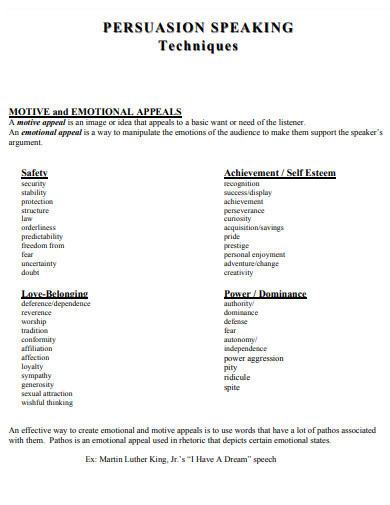
parkwayschools.net
2. Commercial Emotional Appeal Example
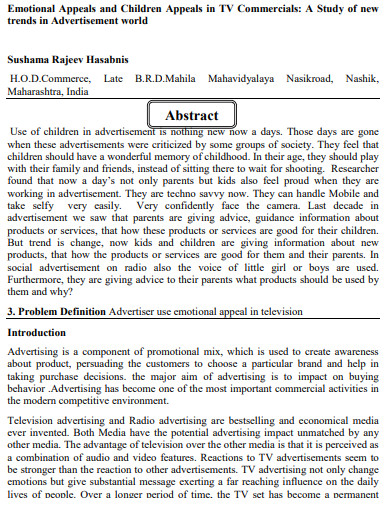
oiirj.org
3. Marketing Emotional Appeal Example
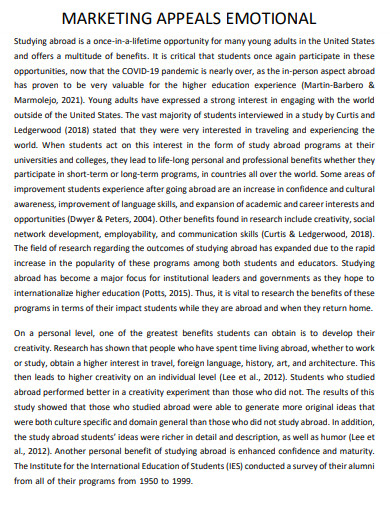
modul.ac.at
4. Ethos Emotional Appeal Example
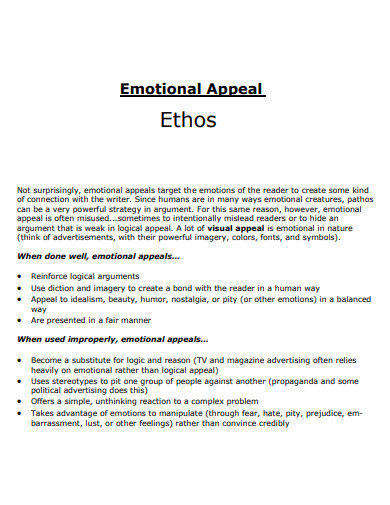
mi01000971.schoolwires.net
5. Different Emotional Appeal Example
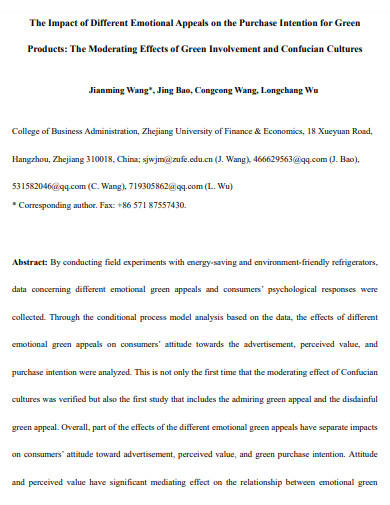
pdf.sciencedirectassets.com
6. Logical Emotional Appeal Example
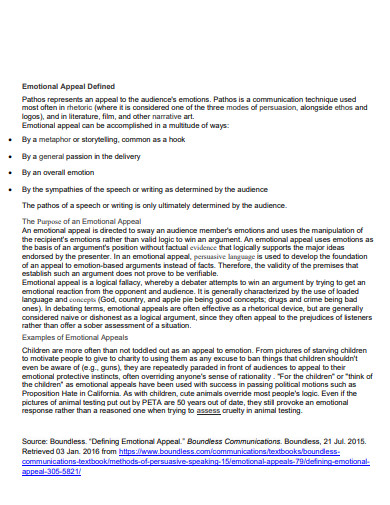
jackson.stark.k12.oh.us
7. Emotional Rational Appeal Example
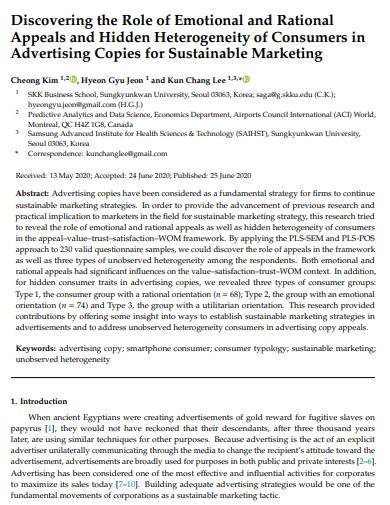
mdpi-res.com
8. Personal Emotional Appeal Example
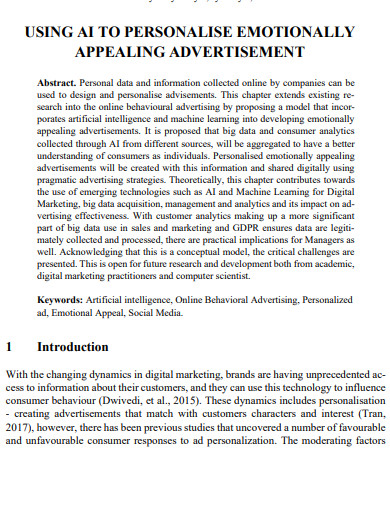
gala.gre.ac.uk
9. Product Emotional Appeal Example
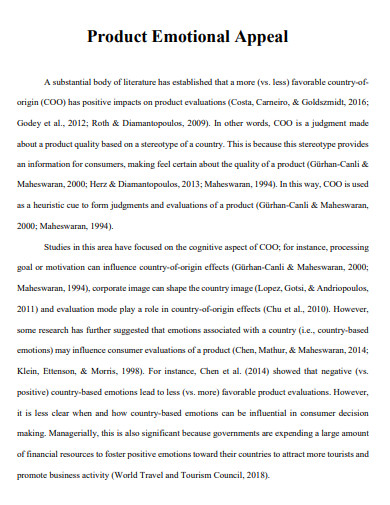
ro.uow.edu.au
10. Negative Emotional Appeal Example
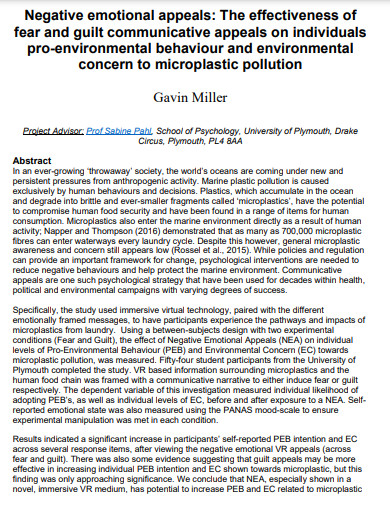
pearl.plymouth.ac.uk
11. Charity Emotional Appeal Example
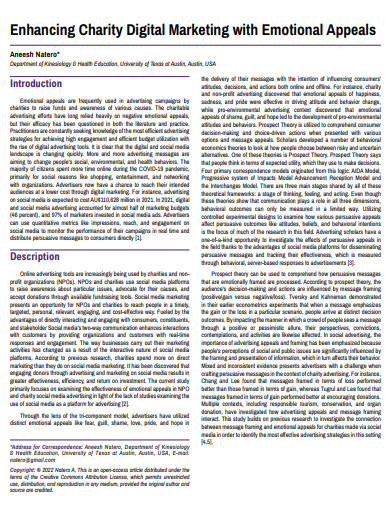
hilarispublisher.com
12. Social Emotional Appeal Example
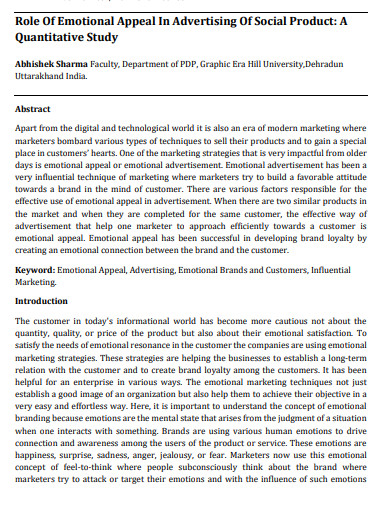
ilkogretim-online.org
13. Emotional Appeal Literature Example
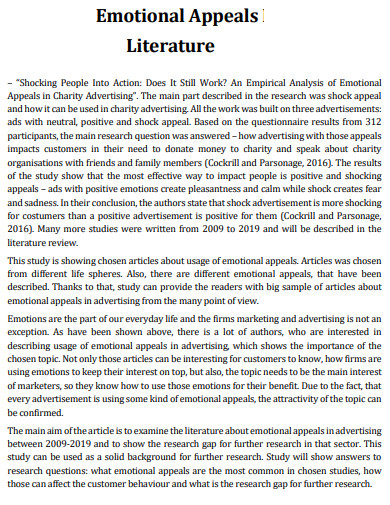
littera-scripta.com
14. Emotional Appeal Rhetorical Example
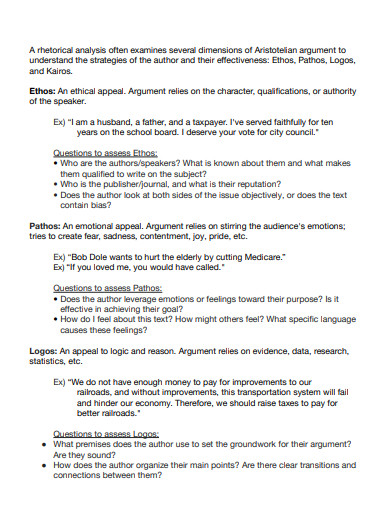
clas.ucdenver.edu
15. Emotional Appeal Business Example
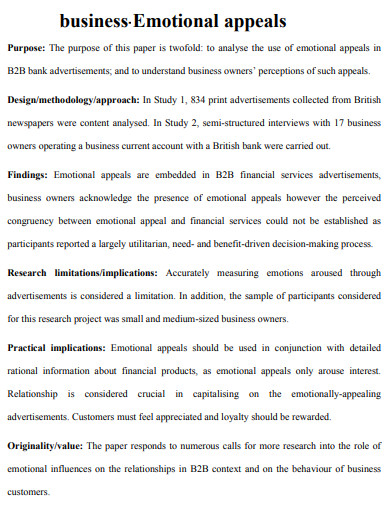
iranarze.ir
16. Power of Emotional Appeal Example
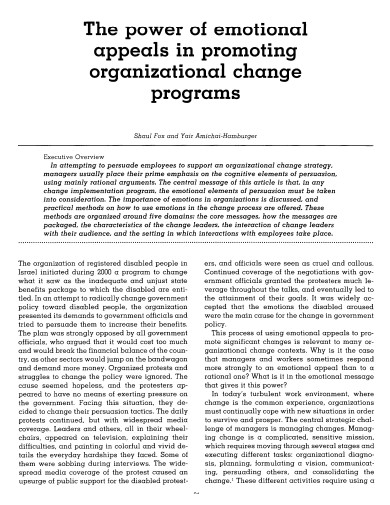
spartan.ac.brocku.ca
17. Positive Emotional Appeal Example
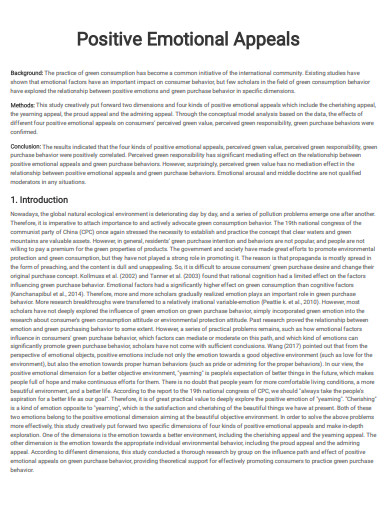
assets.researchsquare.com
18. Analysis of Emotional Appeal Example
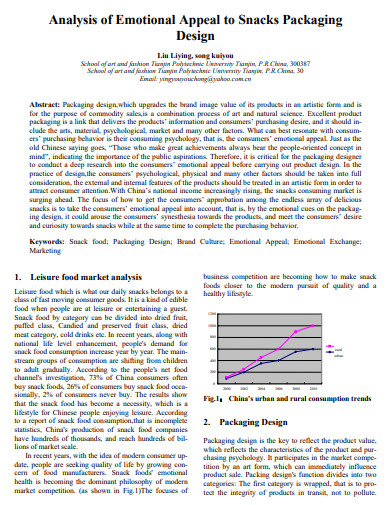
scirp.org
19. Emotional Appeal Critical Thinking Example

homepages.hass.rpi.edu
20. Investigating Emotional Appeal Example
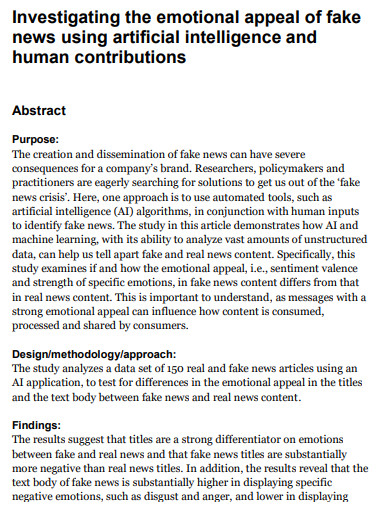
diva-portal.org
21. Effects of Emotional Appeal Example
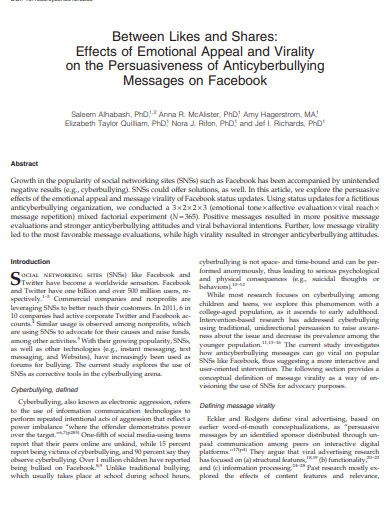
hrcc.cas.msu.edu
22. Study of Emotional Appeal Example
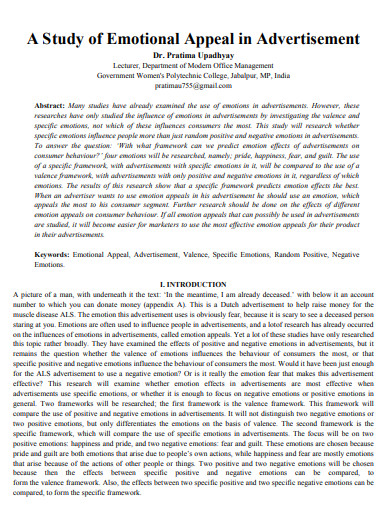
ijarsct.co.in
23. Emotional Appeal Model Example
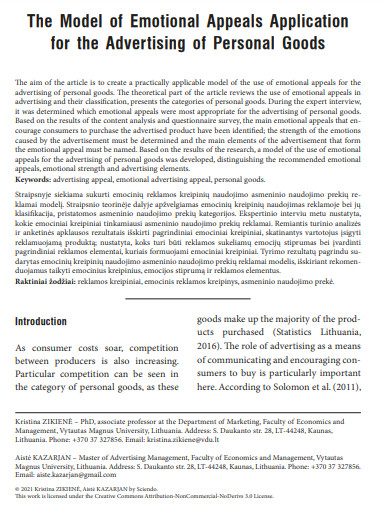
sciendo.com
24. Fallacies Emotional Appeal Example
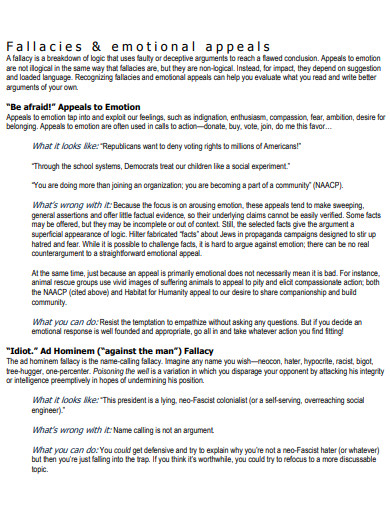
yc.yccd.edu/wp-content
25. Advertising Emotional Appeal Example
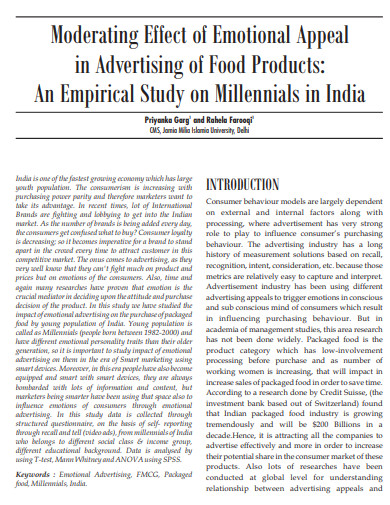
amity.edu
26. Communication Emotional Appeal Example
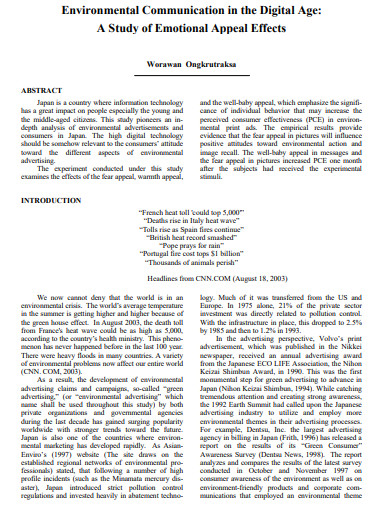
bu.ac.th
27. Sample Emotional Appeal Example
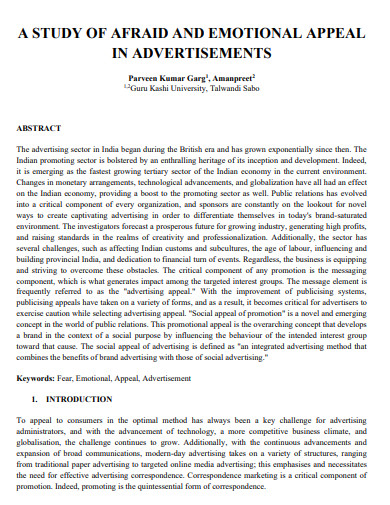
jcreview.com
28. Influence of Emotional Appeal Example
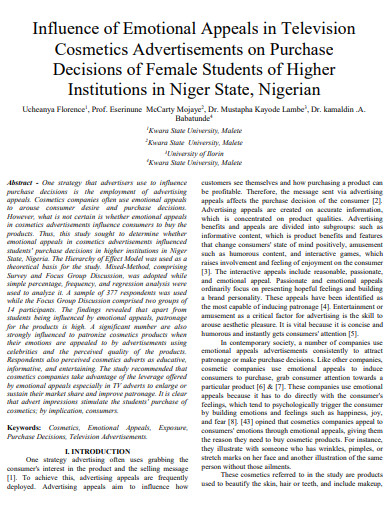
internationaljournalssrg.org
29. Dept Emotional Appeal Example
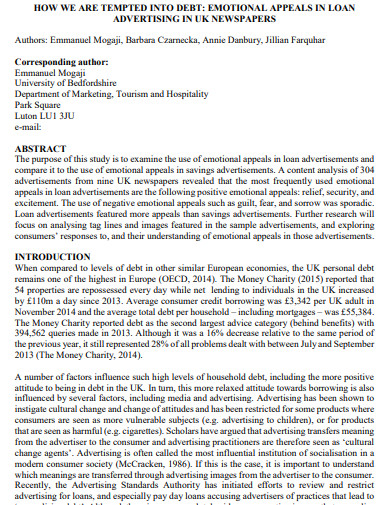
core.ac.uk
30. Behavior Emotional Appeal Example
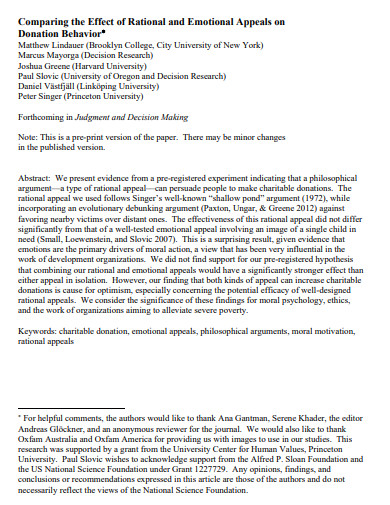
philarchive.org
31. Printable Emotional Appeal Example
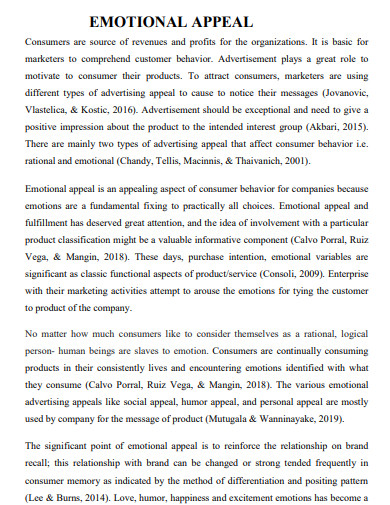
elibrary.tucl.edu.np
What Is an Emotional Appeal?
An emotional appeal is a rhetorical device or a literary device that aims to evoke empathy, sympathy, or passion to persuade an audience or reader. By triggering emotional responses, communicators seek to connect on a personal level, often influencing opinions or decisions based on feelings rather than solely on logic or facts. Emotional appeals are commonly used in advertisements, speeches, and persuasive writing to create a stronger and more memorable impact.
How to Provide an Emotional Appeal
A well-made emotional appeal can significantly influence a person’s want or need to do a specific thing in various contexts. If you want to have emotional appeal references, you may use any of the emotional appeal samples, examples, and articles on the links above.
Step 1: Choose an Emotion You Want to Evoke
The first thing you must do is select an emotion you want to evoke from your target audience. The emotion will determine the various words, tones, and scenarios you can use to create the emotional appeal.
Step 2: Research Various Context Related or Adjacent to the Chosen Emotion
Start by researching the various contexts related or adjacent to the chosen emotion. This research will help you determine what you can use or write in the emotional appeal you will use to persuade your target audience.
Step 3: Choose the Medium You Want to Create an Emotional Appeal On
Select the medium you want to create an emotional appeal on. This could either be a written book or passage that will detail various emotions and appeal to the audience through writing, or you can choose to write a speech that will utilize emotional appeal.
Step 4: Create the Emotional Appeal
When you have chosen the medium of your emotional appeal, you will either write or prepare the appeal. Just note, that the quality of the emotional appeal will directly affect the persuasion of the speech or writing.
FAQs
Pathos, ethos, and logos are the three appeals a person can try and use to persuade a person. While ethos establishes the speaker’s credibility and logos appeals to logic and reason, emotional appeal leverages emotions to evoke a deeper connection with the audience, enhancing the overall persuasive effect by appealing to both rational and emotional aspects.How does the emotional appeal connect to ethos, pathos, and logos?
Emotional magnets are distinctive triggers, motifs, or aspects that regularly elicit intense emotional reactions in people. These might include subjects, tales, pictures, or words with the ability to capture and engage people’s emotions, and are frequently utilized deliberately in communication and marketing to grab attention and produce a memorable effect.What are emotional magnets?
Individuals may be influenced by an emotional appeal in a variety of ways, including grabbing their attention and influencing their decision-making process depending on their emotional reaction. It may also improve the message’s memorability and make it more relatable, influencing how people perceive, recall, and respond to communication.What are the effects of an emotional appeal?
Emotional appeal is a tool a person can use to appeal or persuade a person to do a specific action or to change their stance on a specific concept or idea through the use of emotions. It is important to know how to create an emotional appeal to persuade a person to do a specific action or to change their stance.


